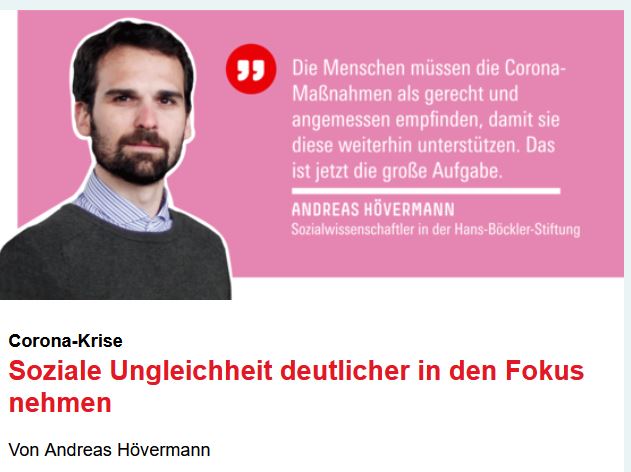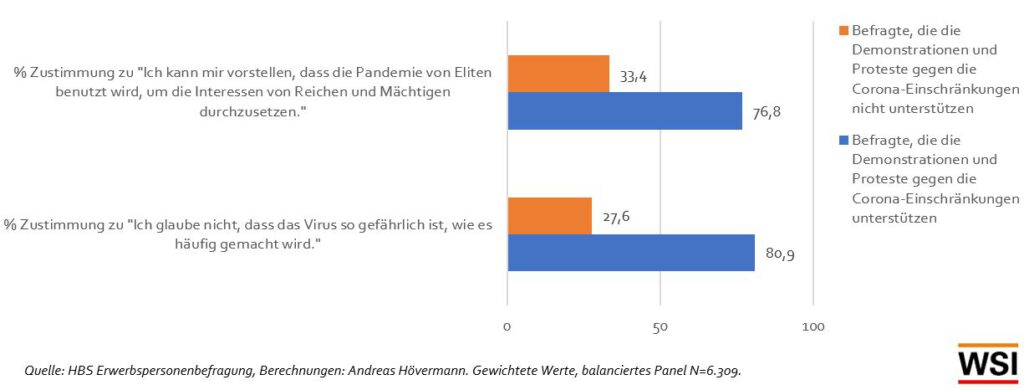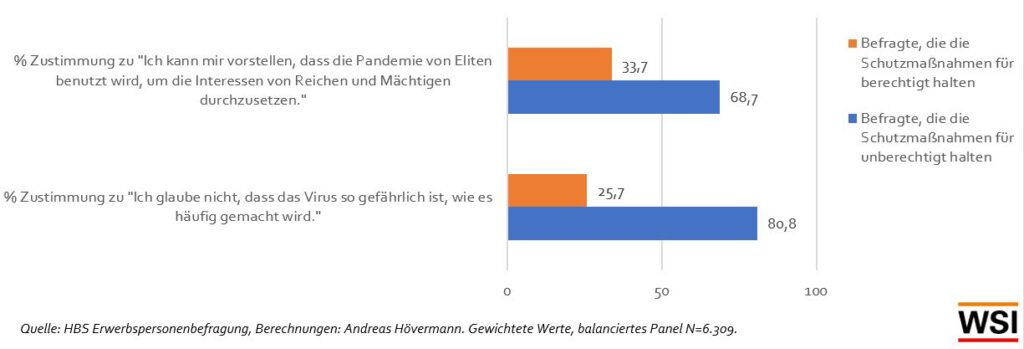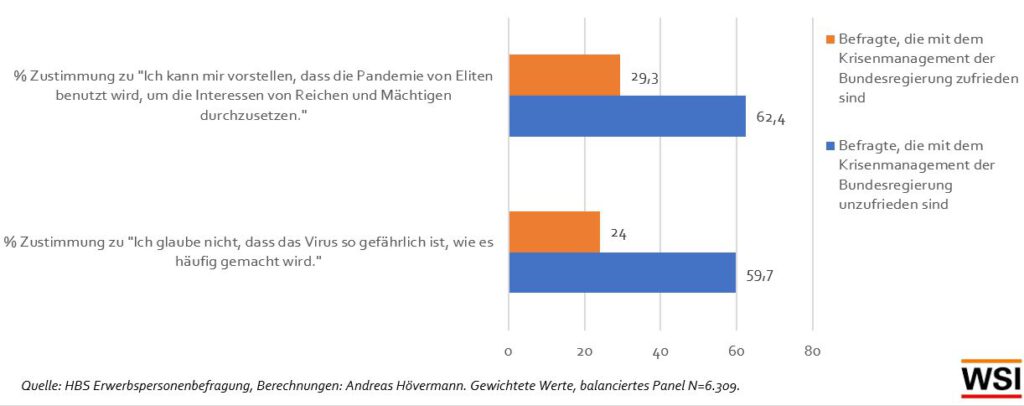Our new report on income distribution in Germany is available. It is divided in two parts. The first part shows how incomes developed between 2010 and 2017 with SOEP data. Incomes in all income classes rose with the exception of those at the lower end. As incomes in the middle also benefitted, social inequality in general decreased slightly.
In a second part we focus on the most recent developments during the COVID-19 crisis and analyze who suffered income loss with data of the HBS work-force panel. On the one hand the results show that employees affected by the specific direction of the German lockdown were affected (self-employed, freelancers, employees working in the hospitality sector, parents). On the other hand, we find that those employees, who were lacking protection before and who had the lowest incomes were the one´s most frequently affected with high income loss. These findings suggest a rise in social inequality, as low incomes are disadvantaged again and middle incomes are harder hit by the pandemic than high incomes.
Here´s the full report, the press release, my twitter thread summary, and some news reports by SPIEGEL, Süddeutsche Zeitung, Handelsblatt, Rheinische Post (all in German).
Here you can find a 10-minute live interview with Radio Corax.



